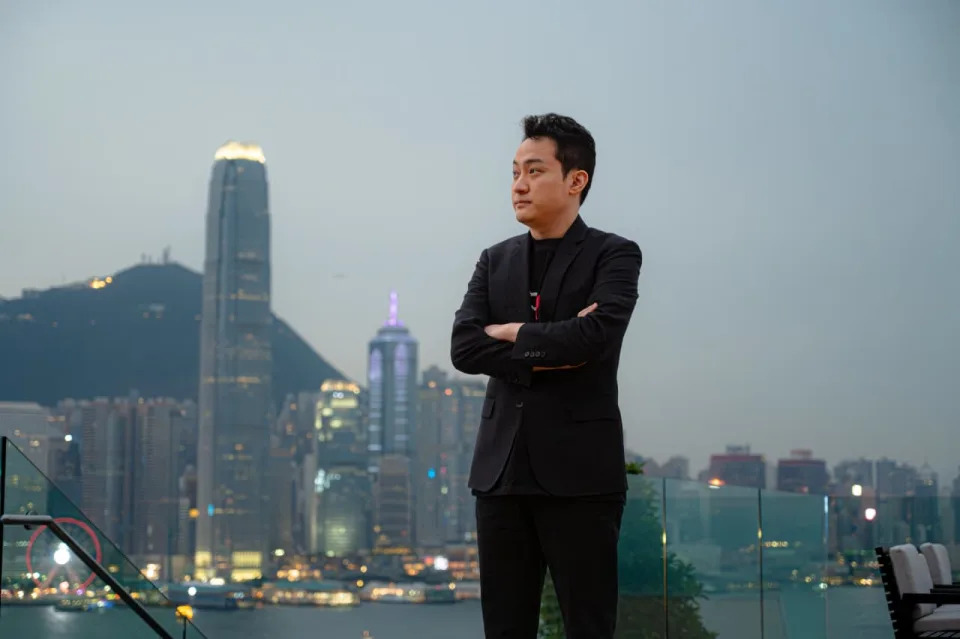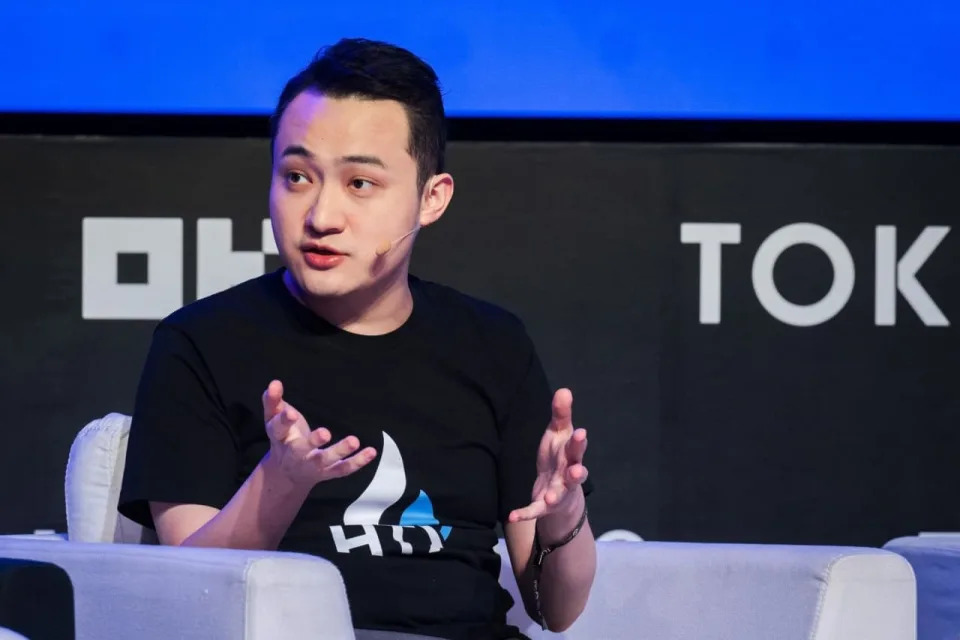News
Justin Sun wants to be the Musk of crypto
President-elect Donald Trump’s newest ally in the cryptocurrency markets is a Chinese-born entrepreneur who has been accused of fraud by U.S. regulators and recently spent $6.2 million on a banana.
Justin Sun, founder of the Tron blockchain ( TRX-USD ), invested $30 million in the Trump family-backed crypto project World Liberty Financial in November. Sun stepped in when the project appeared to struggle to meet its fundraising targets, imperiling a potential payout for the Trump clan. The Trumps now stand to get paid, and Sun serves as an adviser to World Liberty.
Sun could use more friends in Washington. The Securities and Exchange Commission sued him and three of his businesses in 2023. The agency alleges he sold unregistered securities, manipulated token prices and paid Lindsay Lohan and other celebrities to promote his schemes.
Sun’s businesses and antics have been a persistent presence in the crypto world for the past seven years. Volatile price swings and epic scandals may have taken out some of his contemporaries, but Sun carries on unfazed by past controversies and legal skirmishes.
Just days before his investment in World Liberty, Sun spent more than $6 million in a Sotheby’s auction for an art piece that consisted of a banana taped to a white wall. He later held a press conference to showcase himself eating the fruit. An article on the stunt by CoinDesk, and the pressure Sun’s team applied to take down the story, touched off a debate over the news outlet’s editorial independence .

In courting publicity, Sun said he draws inspiration from another figure who has already found his way into the president-elect’s inner circle.
“I want to be the Elon Musk of the crypto world,” he said in an interview. “Even though it might sound crazy or too much for some people in the early days, eventually I think lots of things we do will have great results.”
Sun’s World Liberty investment looks like an attempt to curry favor with the incoming Trump administration, according to Dennis Kelleher, CEO of Better Markets, a group that advocates for stronger financial oversight. “But this is a very serious lawsuit,” he said. The allegations are “not something that even the new chair of the SEC is going to lightly dismiss.”

A Tron spokesman said they “strongly dispute these allegations and any wrongdoing.” Sun’s companies have sought to dismiss the suit.
Sun said he decided to invest in World Liberty after seeing Trump and his sons Eric and Donald Jr. promote their interest in “bringing crypto and traditional finance together.” There was more riding on the sale of World Liberty’s tokens than just bringing digital assets into the mainstream; the Trump family-owned entity stood to earn 75% of the net revenues if the project raised $30 million.
By mid-November, World Liberty had raised only about $20 million . Enter Sun, whose $30 million investment assured the Trumps would get their payout. “I always want to get more people into the crypto industry,” he said. Sun’s investment decisions, a spokesman said, aren’t politically motivated.
Sun came to the U.S. in 2011 to pursue a graduate degree from the University of Pennsylvania. He grew enamored with Musk and his car company, Tesla. And with bitcoin; Sun was studying for the Law School Admission Test when he caught the crypto bug and changed the course of his career.
Sun launched the Tron blockchain in 2017 as a faster and cheaper alternative to Ethereum, and sold $70 million of Tron’s TRX token before China declared the fundraising method illegal and banned it . In 2018, Ethereum co-founder Vitalik Buterin accused Sun of copying his white paper.

Tron also became a popular destination for transactions using tether, the world’s largest stablecoin. Stablecoins, which seek to maintain a value of $1, are often used for cross-border payments—and for illicit activities.
Almost half of all illicit crypto volume occurred on the Tron blockchain last year, according to crypto-analytics firm TRM Labs. Tron now works with TRM to detect illegal activity and has helped freeze about $70 million of assets this year. As a blockchain, Tron doesn’t assess its users’ intentions, a Sun spokesman said.
Sun has since expanded his reach into a web of companies, and grabbed attention however he can.
In 2021, he adopted the title “His Excellency” after winning an appointment representing Grenada with the World Trade Organization, though the Caribbean nation has since rescinded Sun’s position.
Sun paid $28 million for the first seat on a space-tourism rocket developed by Jeff Bezos’ Blue Origin. He hasn’t taken the trip, citing scheduling conflicts. When Sam Bankman-Fried’s FTX crypto empire was collapsing in 2022, Sun gathered journalists in Singapore to declare he would consider buying some assets. No deal emerged.
Fearing Sun’s influence, Coinbase, the largest U.S. crypto exchange, this month delisted a token issued by BiT Global, citing “the unacceptable risk” that the coin would fall into Sun’s hands. BiT, which is advised by Sun, has sued Coinbase over its decision. The delisting is “not even close to proof of any wrongdoing” by Sun, his spokesman said.
He once even tried to make the case for crypto to one of the market’s critics, Warren Buffett. In 2019, Sun placed the winning bid—a $4.6 million donation —in the annual charitable auction for the opportunity to dine with Berkshire Hathaway’s ( BRK-B , BRK-A ) chairman.
The event, on which Buffett declined to comment, didn’t go as planned.
Sun postponed the meeting at the last minute, then changed its venue. By the time it was rescheduled, Sun had apologized for his “excessive self-promotion” and “penchant for hyping up things.” Unmoved by Sun’s pitch, Buffett has steered clear of bitcoin .
As for urging Buffett to invest, and in his many other pursuits of the limelight, Sun has no regrets.
“I think Warren Buffett made a mistake,” Sun said recently.
— Alexander Osipovich contributed to this article.
Write to Vicky Ge Huang at vicky.huang@wsj.com

